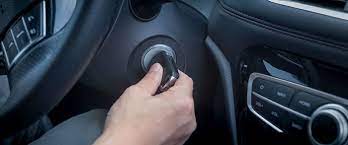Stalling is when the engine of a vehicle switches off as a result an issue with clutch control and usually happens accidentally.
When the clutch is raised too quickly in a manual transmission car, the sudden increase in load on the engine causes the engine to stop operating and stop turning. Basically, the engine plate and the clutch plate in the vehicle isn't given enough time to connect and transfer power correctly.
The best way to prevent the engine from stalling is to hold the car at it's biting point for longer to give the plates time to connect. It often helps to count to 3 seconds while bringing up the clutch fully - this is usually enough time to connect.
Although very rare, the engine in a vehicle with an automatic transmission can also stall if it is travelling in the opposite direction to selected gear such as the car is in 'drive' (D) and the car is travelling backwards.
Common causes of stalling
- Bringing the clutch up too quickly
- Trying to move the car off in a high gear
- Changing up to a gear that is too high for the vehicle's speed
